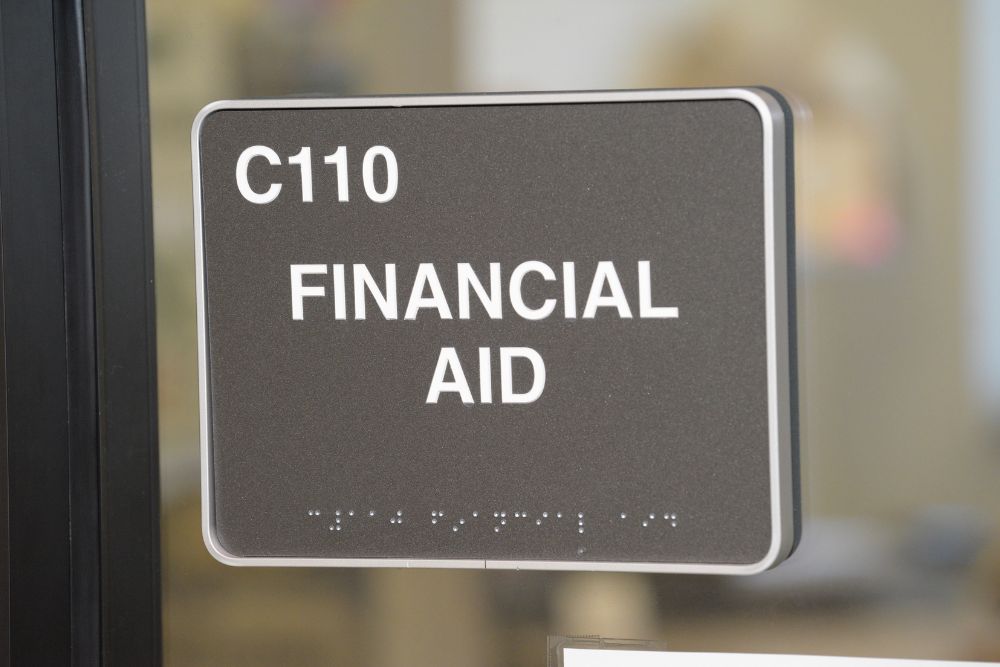Financial Aid
Financial Aid Office
Located in C110
Phone: 419-267-1333
Email the office
Financial Aid Office Hours
- Monday & Tuesday 8:00 AM – 6:00 PM
- Wednesday & Thursday 8:00 AM – 4:30 PM
- Friday 8:00 AM – 4:00 PM
- Saturday & Sunday Closed
Concerned about the cost of your education? We can help!
Investing in a college degree could be the best financial decision you ever make, and best of all, you may be eligible for financial aid to help offset the cost of tuition. There are many different types of financial aid to assist you in bridging the gap between your family contribution and the cost of your educational expenses.
The NSCC Financial Aid Office is available to help you through the process of applying for financial aid. Contact us to schedule an appointment.

Important Dates: Academic Year 2025-2026
Consumer Information
Northwest State Community College is committed to the principle of promoting access to information that will allow consumers to make informed decisions about post-secondary education. The Higher Education Opportunity Act requires institutions participating in federally funded financial aid programs to make information about the institution available to the public, current and prospective students, current and prospective student loan borrowers, and current employees. This page provides readily accessible consumer information to help students, parents, employees and the college community make informed decisions about post-secondary education.
You are also entitled to a paper copy of any of the information contained in this webpage. Please contact Northwest State Financial Aid Office by calling 419-267-1333. Please contact us finaid@NorthwestState.edu or call 419.267.1333 if you have any questions or were unable to find the information that you need.
Student Code of Conduct
The code of student conduct exists to advance the core mission of the college, promote a safe and secure educational environment, foster the academic and social development of students, and protect the persons, property, processes and academic integrity of the college community. Although the code is intended to be as comprehensive as possible, it makes no attempt to list all activities, behavior or conduct which may adversely affect the college community.
In order to maintain an orderly process for learning, the instructor/ supervisor/administrator has the authority to exclude any student who is considered to be detrimental to an ongoing learning experience. This may include dismissing a student from a particular course, workshop, or learning event. As a result of disruptive or detrimental behavior, a student may be subject to additional discipline under this policy including, but is not limited to disciplinary probation, suspension, dismissal, expulsion, withholding of transcripts, or other appropriate action.
The code applies to the on-campus conduct of all students and registered student organizations. The code also applies to the off-campus conduct of students and student organizations in direct connection with:
- A class assignment;
- Academic course requirements or any credit-bearing experiences, such as clinical experiences, externships, internships, field trips, study abroad or student teaching;
- Any activity supporting pursuit of a degree
- Activities sanctioned, sponsored, conducted or authorized by the College or by registered student organizations;
- Any activity that causes substantial destruction of property belonging to the college or members of the college community or causes serious harm to the health or safety of members of the College community; or
- Any activity in which a police report has been filed, a summons or indictment has been issued or an arrest has occurred for a crime of violence.
Cost of Attendance
Tuition and Fees
Room and Board
Books and Supplies
Transportation/Online
This represents the cost of travel to and from the college campus. Northwest State students travel, on average, 30 miles a day to come to school. We base the travel rate in accordance to the Ohio Mileage Rate each year
Other Expenses
This is the estimate of costs for clothing, haircuts, entertainment and other miscellaneous expenses. These amounts were based from the results of the College Boards 2021-2022 Living Expense Budget survey.
2025-2026 NSCC Financial Aid Cost of Attendance
| FULL TIME IN-STATE | FULL TIME OUT-OF-STATE | |
|---|---|---|
| Tuition | $6,135 | $12,437 |
| Fees | $975 | $975 |
| Books & Supplies | $1,763 | $1,763 |
| Transportation Costs | $2,400 | $2,400 |
| Food & Housing | $9,818 | $9,818 |
| Personal Expense | $6,363 | $6,363 |
| Total | $27,454 | $33,756 |

Satisfactory Academic Progress
Financial Aid Satisfactory Academic Progress Policy
Northwest State students receiving federal financial aid are required to maintain Satisfactory Academic Progress (SAP), according to federal and state laws.
The review of a student’s SAP is based on the entire academic record. This includes all transfer credit hours being accepted by the College, even if the student did not receive financial aid for a previous semester of enrollment. The SAP is monitored after each semester’s grades are posted. Being eligible to enroll in classes does not mean the student is maintaining SAP for financial aid.
Chart A
| Cumulative GPA | GPA Credit Hours Attempted |
|---|---|
| 1.40 | 1-15 |
| 1.60 | 16-30 |
| 1.80 | 31-45 |
| 2.0 | 46+ |
Chart B
| Total Hours Attempted | Min. Hours Required to Complete |
|---|---|
| 42 | 29 |
| 24 | 17 |
| 12 | 9 |
| 9 | 7 |
| 4 | 3 |
Chart C
| Program | Max. Timeframe to Complete Program |
|---|---|
| Associate Degree | 105 credit hours |
| Certificate Program | 54 hours |
Warning
A student who has not completed at least 67 percent of the total attempted hours, or is below the minimum GPA for credit hours attempted will be placed on warning. The student has one semester to correct the deficiencies in SAP. The student may continue to be eligible for loans and grants and is encouraged to seek counseling, tutoring or other support services for help. Students who are on warning are not allowed to charge their books in the bookstore until the week before classes start for that term.
Suspension
After a semester of warning, the student still has not corrected the deficiencies in SAP. Therefore, the student’s financial aid is suspended.
Maximum Time Frame
To remain eligible for financial aid, a student must make sufficient progress to graduate within 150% of the credit hours required for their program (Chart C). Students in a degree program have a maximum of 105 credit hours to complete their Associate degree. Students in a certificate program have a maximum of 57 credit hours to complete the certificate.
A student who is within 20 credit hours of meeting the maximum time frame allowed to complete a program will have a warning status posted. If the degree or certificate is not completed within the timeframe allowed, the student’s eligibility for federal financial aid will be suspended.
Developmental Hours
A student is limited to 30 developmental credit hours while receiving federal financial aid. Federal financial aid programs will not cover any developmental courses taken after reaching the maximum 30 hours. These courses include but are not limited to Math 050, Math 080, Math 090, English 080, English 090, and Intro to Computers 090.
Repeated Courses
Any courses that are repeated will be used in the calculation of a student’s satisfactory academic progress status.
Reinstatement of Financial Aid / Right to Appeal
A student whose financial aid has been terminated can become eligible for financial aid again by fulfilling one of the following conditions:
- Eliminate all academic deficiencies by completing the number of credit hours that are lacking, or complete enough credit hours to achieve the minimum cumulative GPA, at student’s own expense.
- Demonstrate special or extenuating circumstances.
A student who has been suspended from receiving financial aid may appeal. The financial aid satisfactory academic progress appeal form gives detailed instructions on how to complete the appeal form. The Office of Financial Aid will respond electronically to an appeal.
Schedule an appointment with a financial aid representative or contact the financial aid office at 419-267-1333 or finaid@NorthwestState.edu
